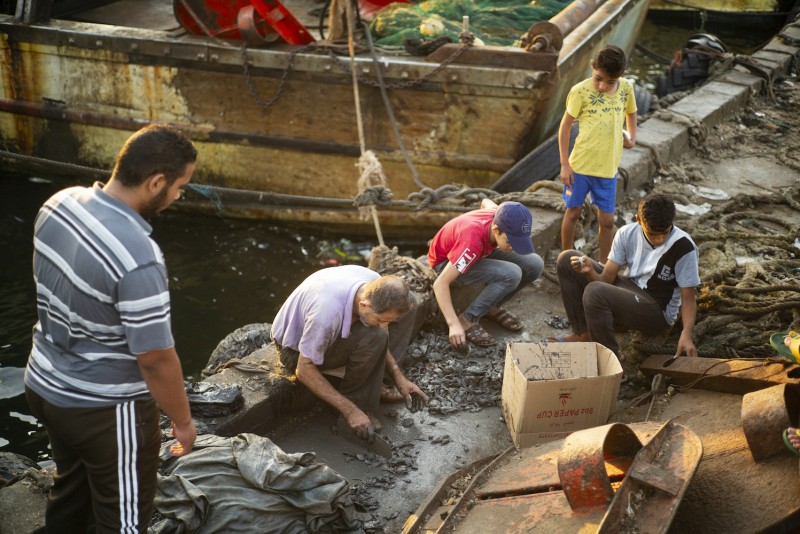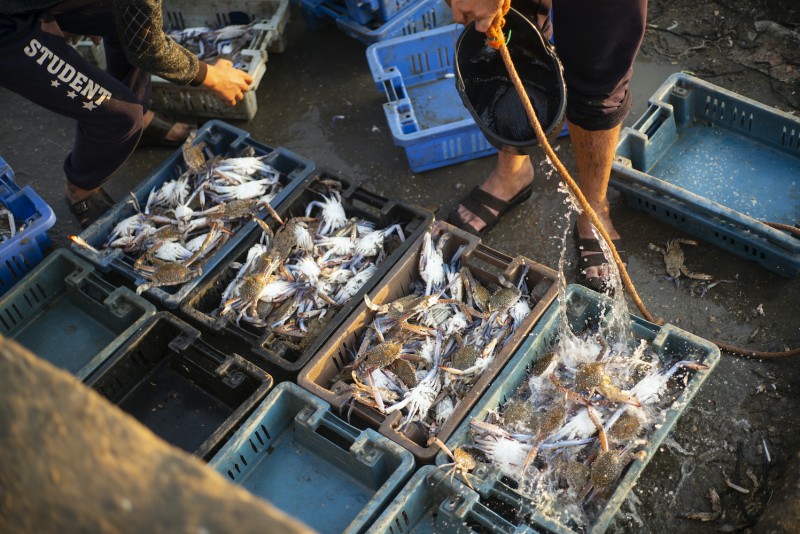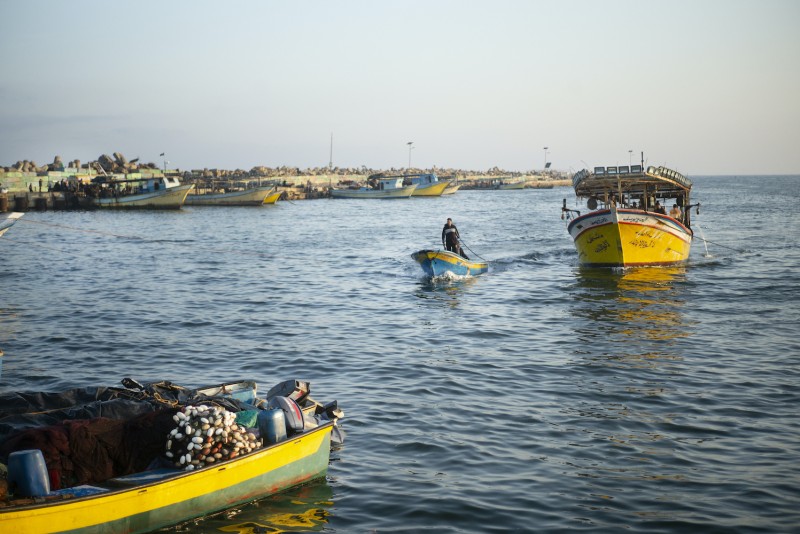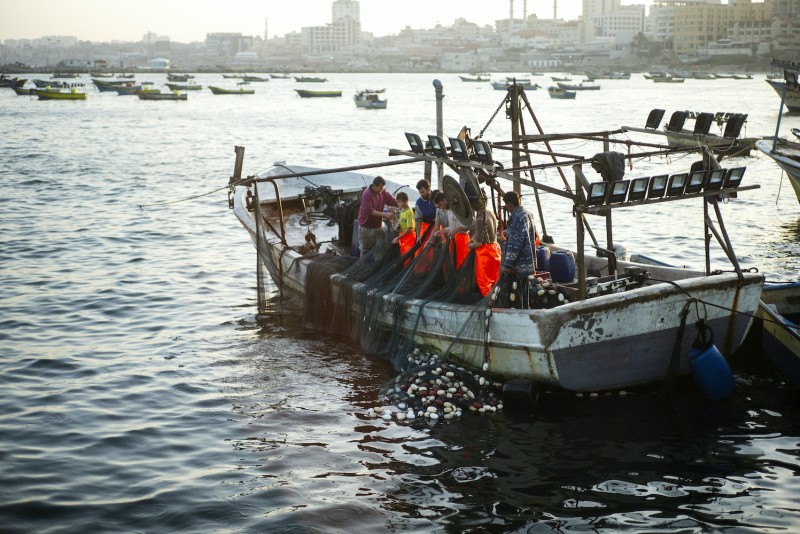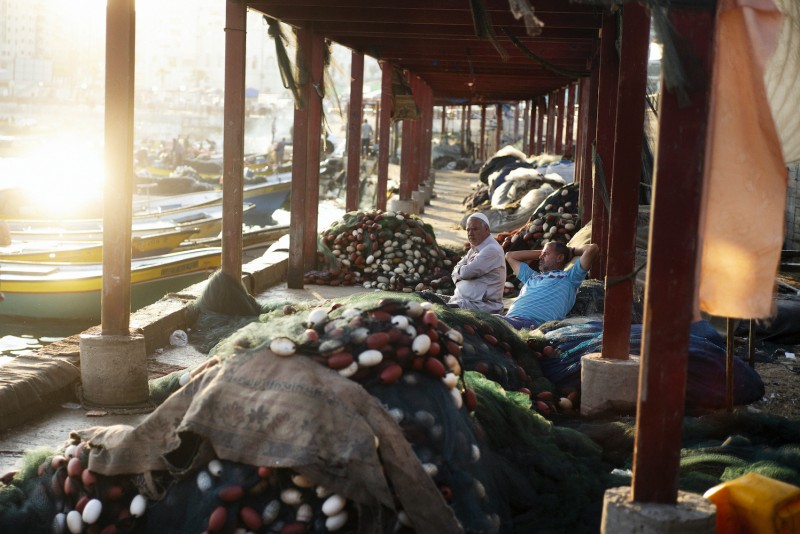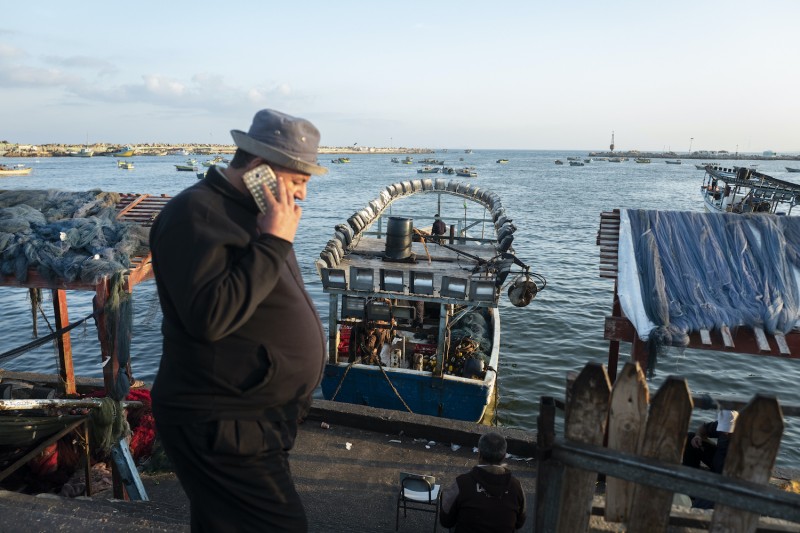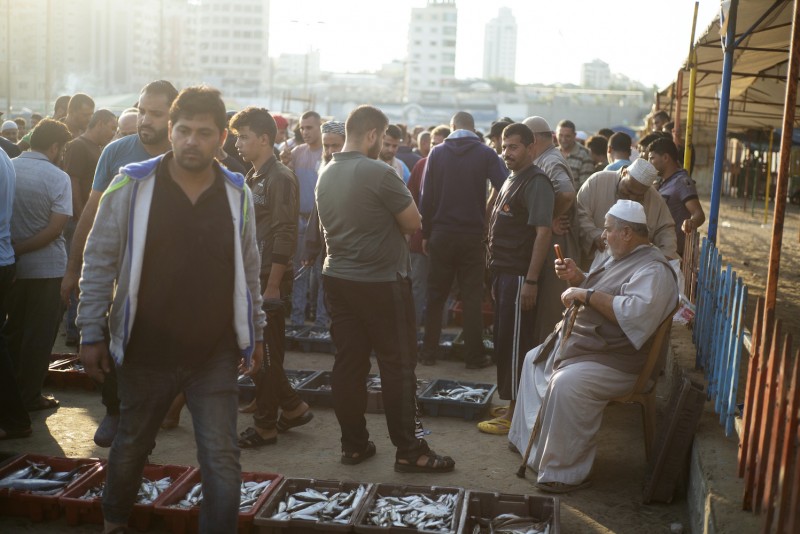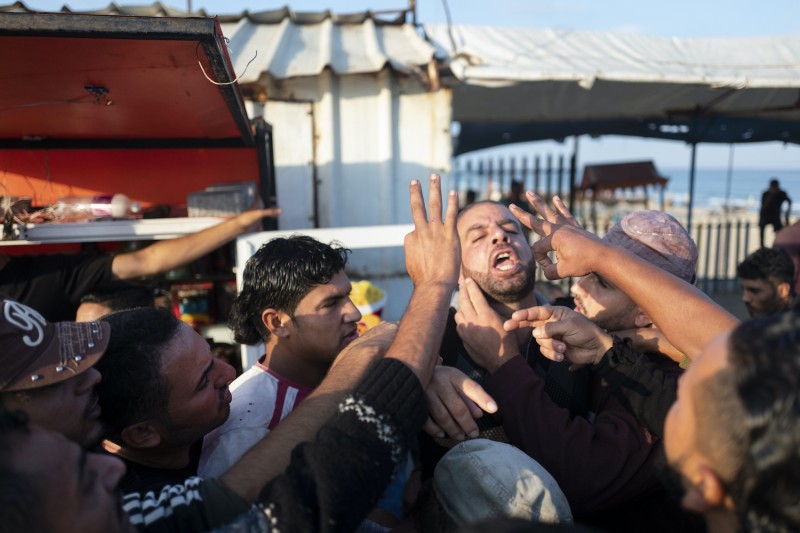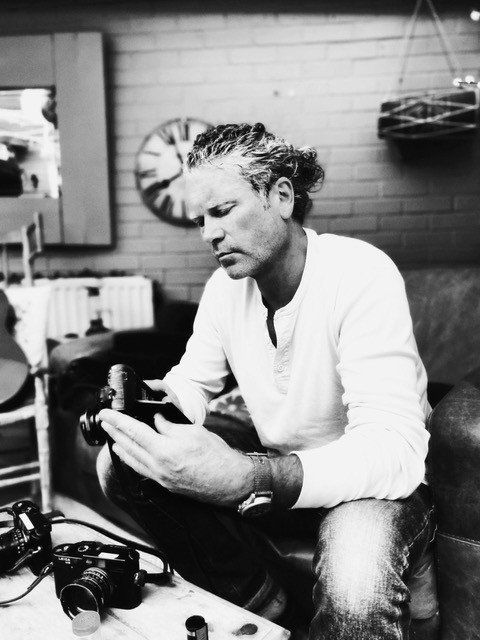Gaza, Fishing Port
Gaza, Fishing Port
Kieran Doherty
October 11, 2021
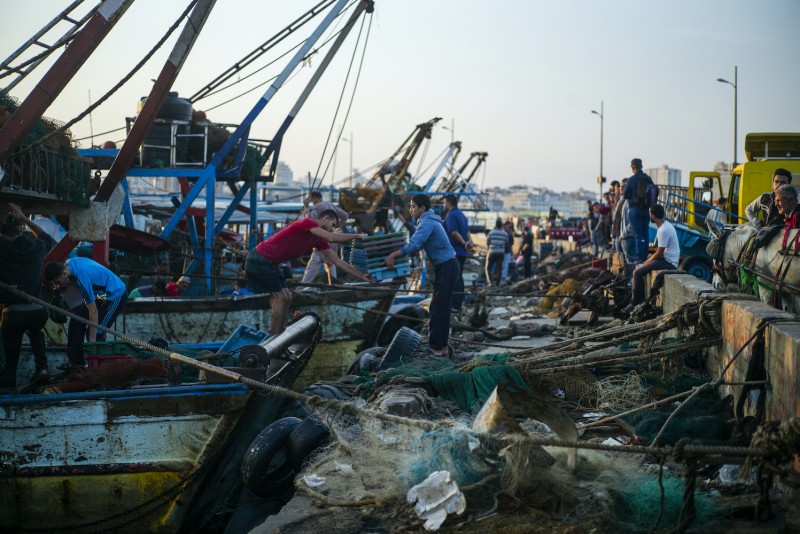
LFI: This is not the first project you've dedicated to fishermen/fishing. What is it about the subject that fascinates you?
Kieran Doherty: I grew up reading books like Ernest Hemingway’s The Old Man and The Sea and Herman Melville’s Moby Dick countless times. I'm sure these two classics in particular stoked my lifelong fascination with fishermen.
What took you to Gaza? And what did you want to show with your series?
I was in Gaza on assignment covering two other stories. It was almost impossible to find time in the schedule we had, and then to be granted the necessary permission to photograph at the harbour wall. Security was paramount in Gaza, as the Israelis had imposed sanctions on how far the fishermen were allowed to sail to catch their fish. Fortunately, I had a superb fixer. I wasn’t trying to show anything in particular with this series. It was an opportunity simply to photograph fishermen in another country, in the beautiful morning light.
How was your experience with the Leica camera? Did it satisfy your expectations for vivid, colourful photos?
I've been using analogue Leicas professionally now since 1990, and digitally since the launch of the M9. I have no other cameras in my arsenal. The M240 is my workhorse, with the Q, SL and M9 as backups. I use M series lenses that are about 50 years old: a 28, a 50, and a 90. I think most of these images were shot using the M240. To me this camera is peerless, even within Leica's current range of digital cameras. The CMOS sensor runs a close second to the M9’s original CCD sensor, but the colour palette of the RAW image rendered straight out of the M240 is sensational.
Your images almost seem endless – like an expanded panorama. What is your photographic approach?
I’ve never thought about an approach. Whatever I do is purely instinctive and reactive to any situation I find myself in. I try to keep it very simple, and it involves only geometry and empathy. I work from the background to the point of focus in front of me – in that order. I don’t know why I do it in that order, but I know that the backgrounds are critical to how I work. Once I've arranged the geometry of the photograph through the viewfinder, I then think about the empathy. Of course this is normally the people I am photographing, and who will usually be the point of focus. This all happens in a matter of seconds, as I'm looking for a moment to capture that will be decisive in determining the worth of the photograph. If there is no ‘moment’, no matter how small, then the photograph is meaningless. But the moment does not have to be with the subjects in the photograph; it could just as easily happen in the background, which is why the backgrounds are so critical. (Interview: Katja Hübner)
All images on this page: © Kieran Doherty
Equipment: Leica M (Typ 240), Leica Q, Summilux 28 f/1.7 Asph.
Kieran Doherty+-
Kieran Doherty is a freelance photographer based in the UK. He started his career in photojournalism at the Reuters News Agency in London, covering stories as diverse as the Iraq war, the Asian tsunami and the Troubles in Northern Ireland. He resigned his staff position in 2008 to concentrate on long-form story telling. His photographs have appeared in numerous books and magazines such as Time, Newsweek, Stern, The New York Times and National Geographic. His work has been recognised by, amongst others, the British Picture Editor’s Guild, the Fuji European Press Awards and World Press Photo. More

